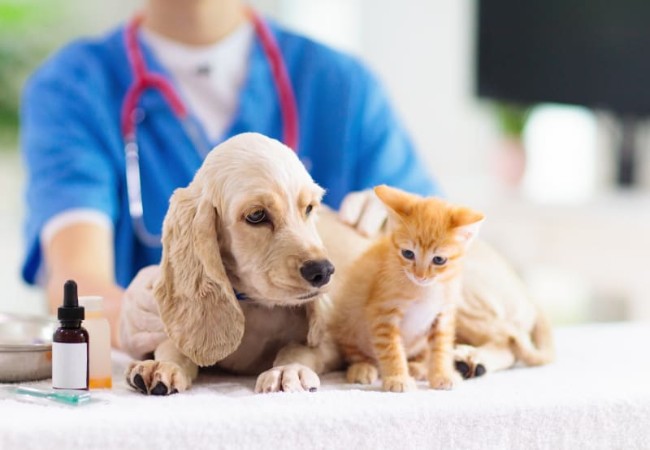Dog & Cat Vaccination FAQs: A Vet-Approved Guide for 2025 🩺🐶

In this article
Dog & Cat Vaccination FAQs: A Vet-Approved Guide for 2025 🩺🐶
By Dr. Duncan Houston BVSc
Vaccinations are a cornerstone of preventive veterinary care, safeguarding our beloved pets from various infectious diseases. 🐕🐈 As we navigate 2025, it's essential to stay updated on vaccination protocols to ensure the health and well-being of our furry companions. Let's delve into the most frequently asked questions about dog and cat vaccinations. 🧠
💉 Core vs. Non-Core Vaccines
Vaccines are categorized based on the diseases they prevent and the risk factors associated with those diseases:
- Core Vaccines: Recommended for all pets, regardless of lifestyle or location.
- Non-Core (Lifestyle) Vaccines: Administered based on a pet's specific risk factors, such as environment and lifestyle.
🐶 Core Vaccines for Dogs:
- Rabies: Protects against a fatal viral disease transmissible to humans.
- Distemper, Adenovirus, Parvovirus (DAP): Shields against severe viral infections affecting multiple organ systems.
🐱 Core Vaccines for Cats:
- Rabies: Essential for preventing a deadly virus that can affect all mammals.
- Feline Viral Rhinotracheitis, Calicivirus, Panleukopenia (FVRCP): Guards against common and potentially fatal feline diseases.
🗓️ Vaccination Schedules
Adhering to a proper vaccination schedule is crucial for effective disease prevention:
🐶 Puppies:
- Initial vaccinations start at 6–8 weeks of age.
- Boosters are administered every 2–4 weeks until 16 weeks of age.
- Rabies vaccine is typically given at 12–16 weeks, depending on local regulations.
🐱 Kittens:
- Begin vaccinations at 6–8 weeks of age.
- Receive boosters every 3–4 weeks until 16 weeks old.
- Rabies vaccination is administered at 12–16 weeks, as per state laws.
⚠️ Vaccine Reactions: What to Watch For
While vaccines are generally safe, some pets may experience reactions:
- Mild Reactions: Lethargy, mild fever, or localized swelling at the injection site.
- Severe Reactions: Vomiting, diarrhea, facial swelling, difficulty breathing, or collapse. Immediate veterinary attention is required.
Note: Small breeds and young animals may have a higher risk of adverse reactions. Discuss any concerns with your veterinarian.
🧬 Vaccine Safety and Efficacy
Modern vaccines undergo rigorous testing to ensure safety and effectiveness. While no medical intervention is without risk, the benefits of vaccination far outweigh the potential adverse effects.
🏠 Do Indoor Pets Need Vaccines?
Yes. Even indoor pets are at risk of exposure to certain diseases through:
- Open windows or doors.
- Human contact with other animals.
- Trips to the vet or groomer.
Maintaining up-to-date vaccinations ensures comprehensive protection.
📅 Booster Shots: Are They Necessary?
Booster vaccinations are essential to maintain immunity over time. The frequency depends on the vaccine type and your pet's health status. Regular veterinary check-ups will help determine the appropriate schedule.
💰 Cost of Vaccinations
Vaccination costs vary based on location, veterinary clinic, and specific vaccines administered. On average:
- Core Vaccines: $20–$60 per shot.
- Non-Core Vaccines: Varies; consult your veterinarian for pricing.
📱 Enhance Your Pet's Health Management with Trusted Resources
For personalized guidance and support, consider these resources:
- Ask A Vet: Connect with veterinary professionals for expert advice. 🩺
Empower your journey as a pet parent by downloading the Ask A Vet app today and ensure your furry friend thrives in 2025 and beyond! 📲🐾






